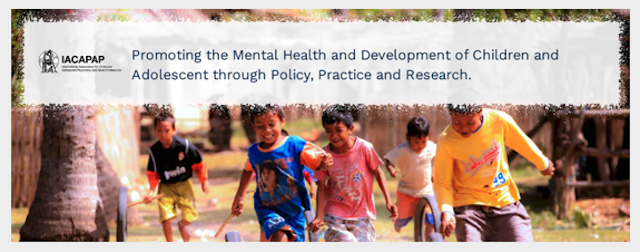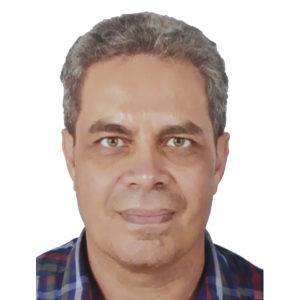11th IACAPAP Lunch & Learn Webinar

Wednesday, May 17, 2023
1:00 PM Tunisia | 2:00 PM CEST | 8:00 AM EDT | 9:00 AM Brazil | 8:00 PM (GMT +8)
Rethinking Services for Autism Spectrum Disorders in Low Resource Settings
A major challenge when practicing in a low resourced setting is to implement appropriate care for a child diagnosed with autism spectrum disorder (ASD). Most of international recommendations insist on highly sophisticated techniques involving specialized professionals. This may lead professionals to feel helpless in front of such disorders despite a skyrocketing incidence.
This presentation refers to our experience in managing ASD based on parental guidance, and coordination with front line professionals in special education or speech therapy, which led to consistent results. It origins from the conviction that the actual solution for autism does not reside in copying sophisticated interventions, but in helping family to understand, identify and work efficiently with the child to correct his/her developmental pathway. It refers to a modern view of autism as a dynamic process rather than a fixed disability based on a genetic-environmental interplay.
Interventions aims at strengthening parents in implementing communication skills at three levels (1. Basics of communication. 2. Symbolic communication and 3.Advanced social communication.) and managing challenging behaviour.
Each acquisition was explained with appropriate actions proposed to parents as “homework” and checked and rated at follow-up sessions
In our experience, practical and simple actions, proposed by clinicians with a minimal level of structuration, and applied by parents and educators under supervision, can lead to robust improvements for children with ASD.
References
1. Shipley-Benamou, R., Lutzker, J. R., & Taubman, M. (2002). Teaching daily living skills to children with autism through instructional video modeling. Journal of Positive Behavior Interventions, 4(3), 166-177.
2. Drew, A., Baird, G., Baron-Cohen, S., Cox, A., Slonims, V., Wheelwright, S., ... & Charman, T. (2002). A pilot randomised control trial of a parent training intervention for pre-school children with autism. European child & adolescent psychiatry, 11(6), 266-272.
3. Eldevik, S., Eikeseth, S., Jahr, E., & Smith, T. (2006). Effects of low-intensity behavioral treatment for children with autism and mental retardation. Journal of autism and developmental disorders, 36(2), 211-224.
4. Fuentes, J., Bakare, M., Munir, K., Aguayo, P., Gaddour, N., Öner, Ö., & Mercadante, M. (2012). Autism spectrum disorders. IACAPAP e-textbook of child and adolescent mental health. Geneva: International Association for Child and Adolescent Psychiatry and Allied Professions, 21-27.
5. Robertson, B., Omigbodun, O., & Gaddour, N. (2010). Child and adolescent psychiatry in Africa: luxury or necessity?: guest editorial. African journal of psychiatry, 13(5), 329-331.
Speaker

Naoufel Gaddour, MD
Associate Professor in Child and Adolescent Psychiatry, University of Monastir, Monastir, Tunisia
Dr Naoufel Gaddour is a child and adolescent psychiatrist practicing in Tunisia and Professor at the University of Monastir. After basic training in Tunisia and France, he obtained a rich and diversified experience thanks to further trainings in North America and in International Educational Meetings such as those organized by EMACAPAP, IACAPAP and INSAR.
For nearly 20 years, beside creating child and adolescent services, he actively participated to the implementation of a widespread network in the field of child mental health, especially for developmental disorders (facilities for children with autism, learning disorders, ADHD) either in public sector or in NGO’s ruled facilities, in his country Tunisia and in the MENA region.
He contributed to the education of many practitioners and students to child and adolescent psychiatry and psychology, and was a founding member and leader for regional and international associations such as EMACAPAP (Arab World) and AACAMH (Africa) and Francophone Network for ADHD and Neurodevelopmental Disorders.
His researches tried to give descriptive and cross-cultural data about CAMH in his region and are tightly connected to his clinical practice.
Among the first generation of the Donald J Cohen Fellows, his trajectory became tightly associated to this important IACAPAP program and he is very proud and grateful to currently serve as one of its coordinators
IMPORTANT NOTES
- The webinar is open for member of IACAPAP (Individual Members and Individuals within IACAPAP Full Member organisation and Affiliate Member organisation).
- This webinar will be conducted virtually via Zoom. There is no cost to attend, but registration is required in advance. Seats are limited and it's based on a first come, first served. E-certificate of attendance will be provided to those who have attended and completed the survey at the end of the webinar. The webinar survey will show in the browser when the webinar ends.
- Kindly click this link to view the time in your country. For more information on IACAPAP Membership, please visit https://iacapap.org/membership/ or contact info@iacapap.org.

